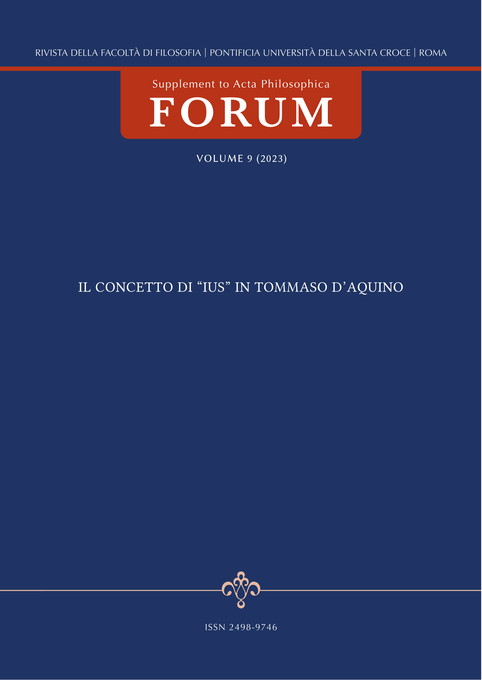Constitutional Thomism: On Ius and the Theory of Constitutional Government
DOI:
https://doi.org/10.17421/2498-9746-09-03Keywords:
Ius, Legal Justice, Common Good, Mixed Government, Constitutional Liberty, St. Thomas AquinasAbstract
This article argues that Aquinas defines ius as the object of justice in its relation to individual persons, in which justice as virtue directs man in his relation to other individuals toward the common good. Considering that it belongs to the law to direct men toward the common good, justice in this context is called legal justice. While Aquinas favors the state's role in cultivating legal justice, he believes that the state must respect the freedom of its citizens. Aquinas believes the common good as the end of law must be accomplished through interior freedom. The perfect order of the common good can only come through a correct interior movement of the soul, not through reward and punishment. Therefore, man needs the divine law to bring about perfect order of the common good by reaching the interior movement of the soul, which makes possible the meaning of constitutional liberty.



